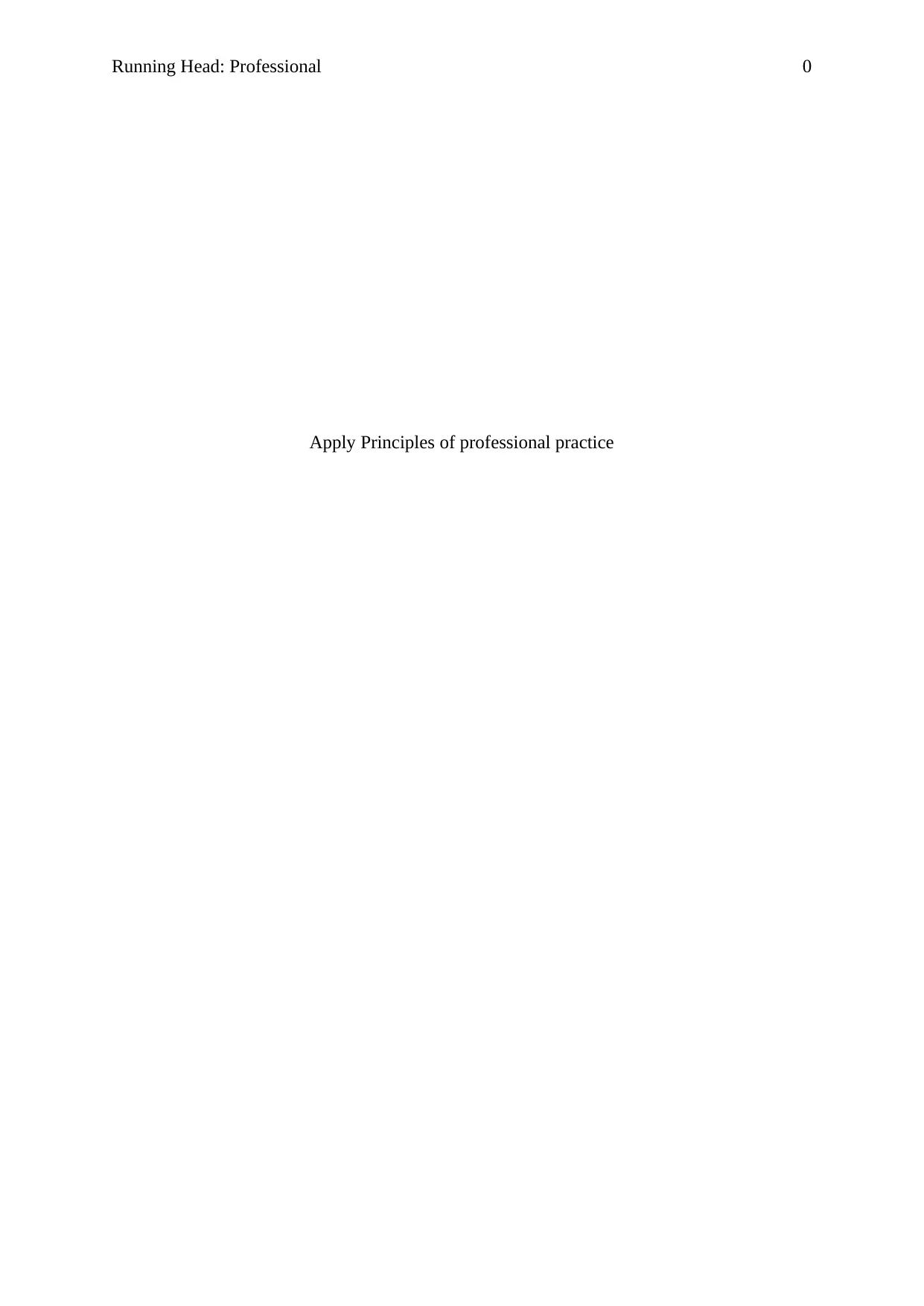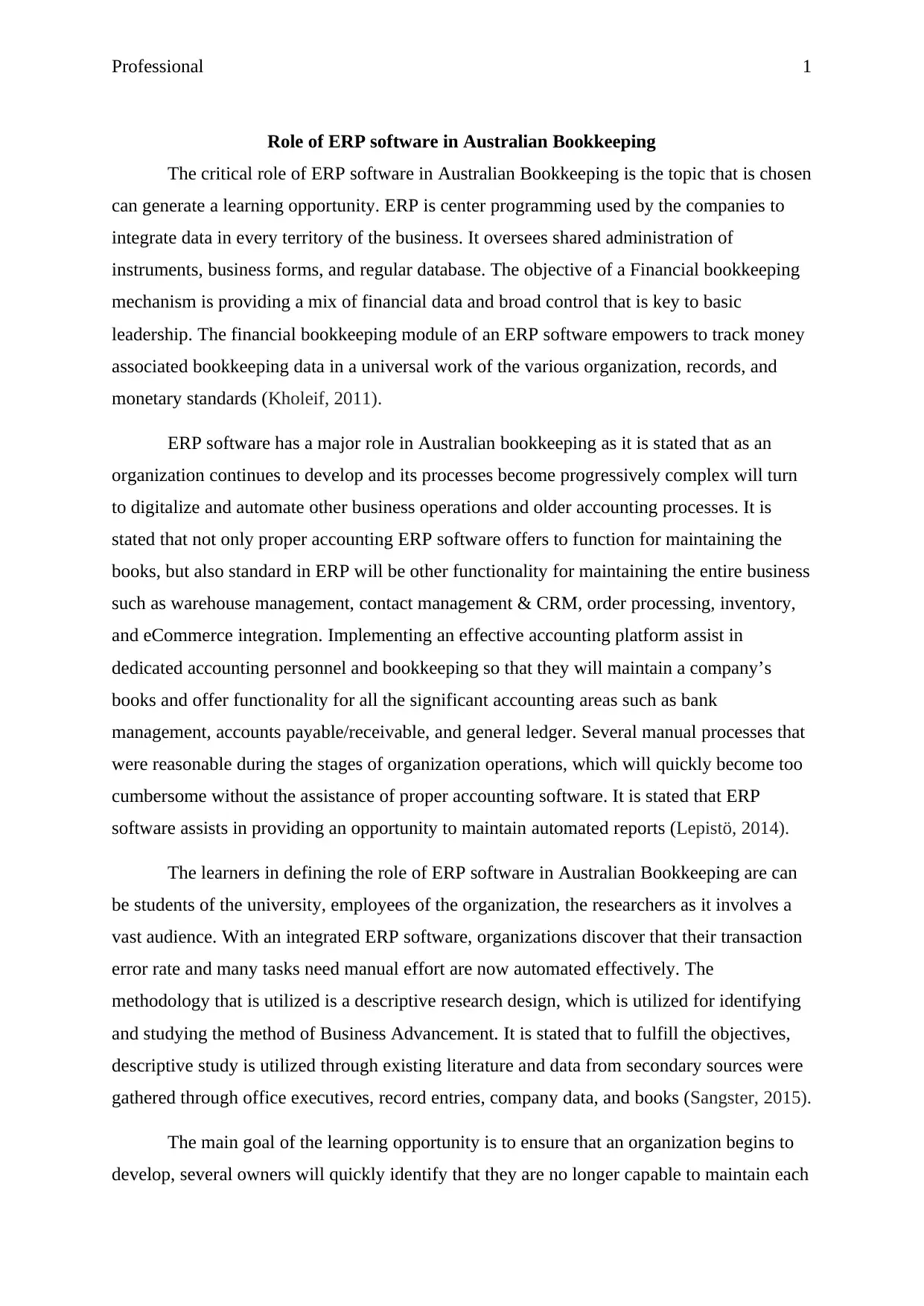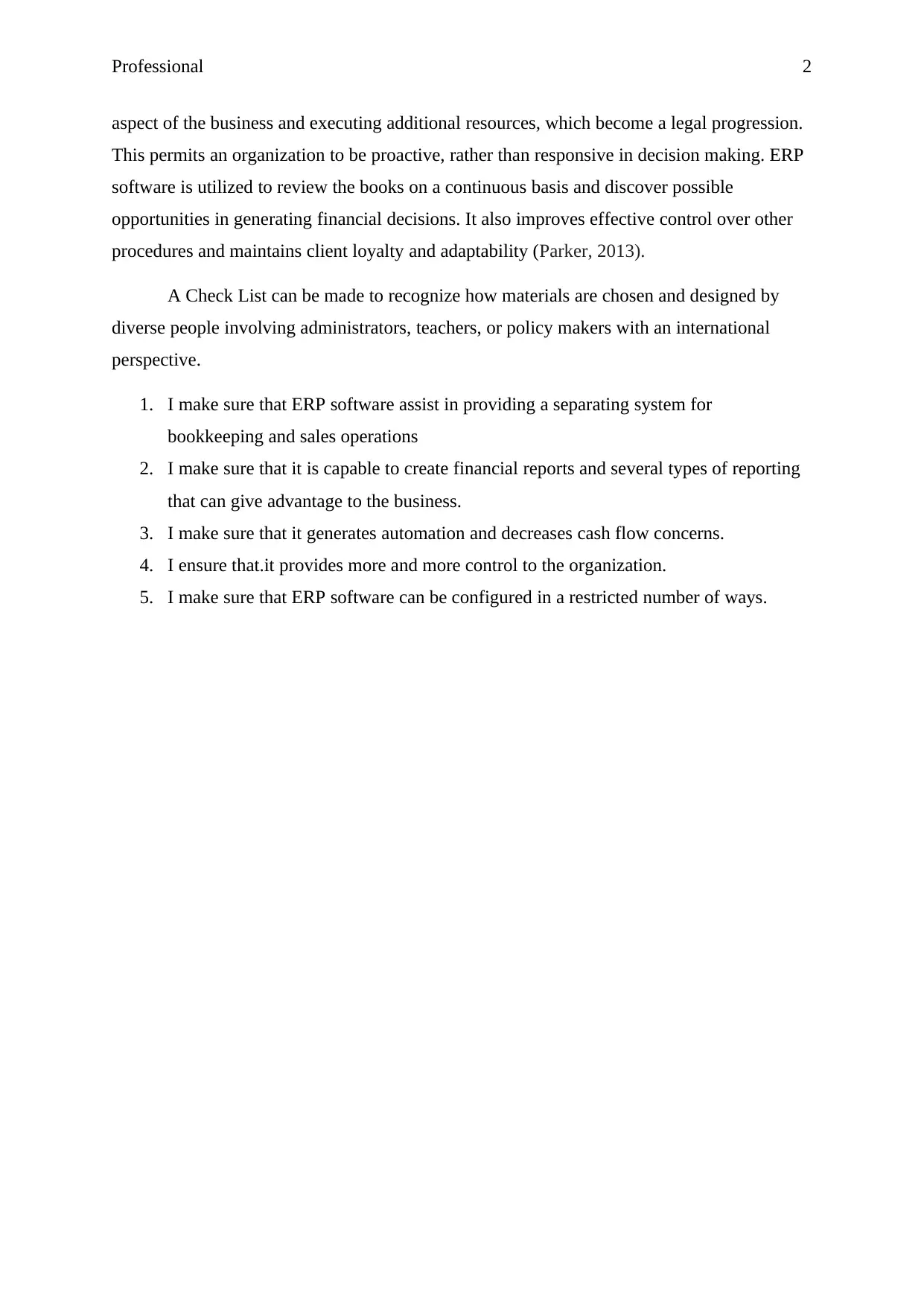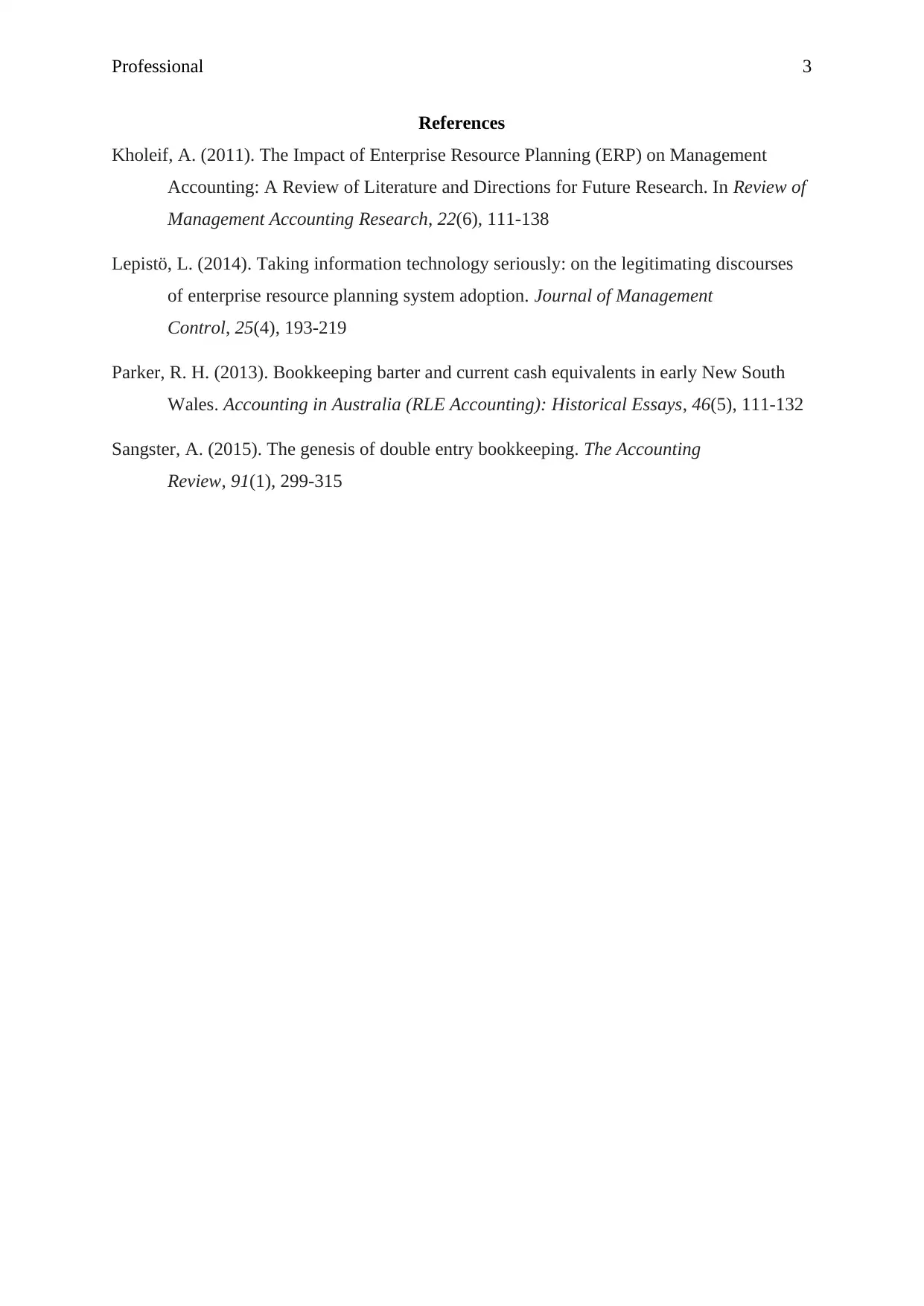Analyzing the Role of ERP Software in Australian Bookkeeping
VerifiedAdded on 2022/11/25
|4
|791
|206
Report
AI Summary
This report delves into the critical role of Enterprise Resource Planning (ERP) software in Australian bookkeeping. It highlights how ERP systems integrate data across business functions, offering financial data and control essential for decision-making. The report emphasizes the shift towards digitalization and automation in accounting processes as businesses grow. It discusses the benefits of ERP software, including automated reports, improved efficiency, and the ability to maintain various business operations such as warehouse management and CRM. The report also describes the methodology used, which includes descriptive research design and secondary data analysis. The learning opportunity is aimed at a broad audience, including students, employees, and researchers, providing insights into how ERP software can improve financial decision-making, enhance control, and boost client loyalty. Key takeaways include the importance of ERP software in providing a separating system for bookkeeping and sales, generating financial reports, and automating processes to reduce cash flow concerns and enhance organizational control. The report references several academic sources to support its findings.
1 out of 4











![[object Object]](/_next/static/media/star-bottom.7253800d.svg)